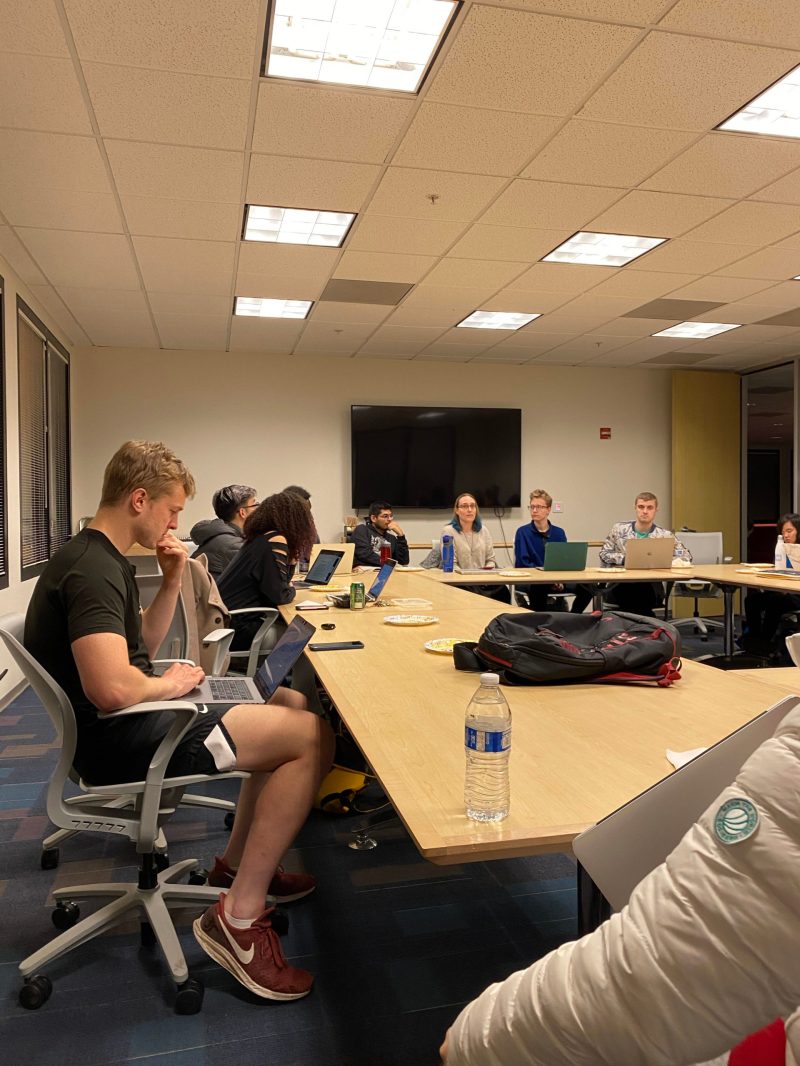Councillors discussed permanent community centers for the first-generation and/or low-income (FLI) and disability communities at Wednesday’s Graduate Student Council (GSC) meeting. They approved a resolution in support of a partnership between Counseling & Psychological Services (CAPS) and the Children’s Health Council, and they also discussed coronavirus-related discrimination and the University’s judicial process. The community center resolution is expected to be put to a vote next week.
Councillor and second-year law student Christopher Middleton authored the “Resolution to Form Permanent Community Centers for the FLI and Disability Communities.” The resolution describes shortcomings to the A-Hub, a community space meant for disabled students, and calls on the University to ensure “a space that allows a place for conversation and advocacy for the disability community.”
Middleton discussed his experience as a FLI student, saying that the lack of a stable community center had undermined the FLI Office’s ability to effectively help FLI students.
“The programming and advocacy that we want to do for our community is often limited by the physical space that we have,” he said, adding that the FLI Office is often unable to provide desired support for students, such as free books through the “FLI-brary,” because of a lack of space.
Representatives such as first-year sociology Ph.D. student Cat Sanchez, co-chair of the Board on Judicial Affairs (BJA) who spoke on the University’s judicial process later in the meeting, referenced collaboration between the FLI Office and the Stanford Disability Initiative to garner University support.
“17.5% of Stanford students are registered with the [Office of Accessible Education], and there’s even more students who aren’t registered and have disabilities,” said Associated Students of Stanford University (ASSU) Executive Director of Disability Advocacy Rachel Wallstrom ’21.
“Students with disabilities face not only stigma but certain types of barriers that other students don’t on campus,” Sanchez added. “Us getting a center would be humongous.”
Sanchez stressed the importance of student support on this issue, saying that the OAE’s role doesn’t position the office well to advocate for a center’s establishment.
“The OAE handles the accommodations side,” Wallstrom said, “but there is no other University acknowledgement that being a disabled student is an experience — and for many people, an identity — that affects them throughout their time at Stanford, whether they are using accommodations or not using accommodations.”
Representatives from Residential & Dining Enterprises (R&DE) provided updates on graduate student housing, saying that housing rates were being finalized and would likely be announced in mid-February.
Councillors also discussed the R&DE food pantry program, raising concerns about international students’ ability to partake given the Supreme Court’s recent lifting of an injunction against President Donald Trump’s “public charge” immigration rule. That policy “would expand the government’s ability to refuse green cards or visas for legal immigrants determined to be a ‘public charge,’ or dependent on public assistance,” Politico reported.
Councillors expressed concern that international students might fear using resources such as the food pantry, suggesting R&DE communicate with the Bechtel International Center on this matter.
R&DE Executive Director Eric Montell, however, encouraged the GSC to talk to Bechtel, saying that R&DE’s role was to facilitate the providing of food.
Councillors also briefly discussed the novel coronavirus, stressing a need to avoid discriminatory rhetoric and to serve as “good role models.”
Council co-chair and fourth-year mechanical engineering Ph.D. student Yiqing Ding gave updates by tele-conference. Members of the GSC had brought up concerns with University administrators, he said, related to expressions of racism and discrimination toward students “whose origins align with the virus.”
While administrators said they would watch out for these kinds of incidents, there are no dedicated links for students to report said discrimination, Ding said.
Sanchez and two other members from the BJA also discussed the Committee of 10‘s task to review the University’s judicial process and possibly write a new Judicial Charter. They also discussed the BJA’s role in overseeing the Office of Community Standards (OCS), which deals with Honor Code violations, aiming to ensure it functions as an “educational process” rather than merely a punitive one.
The Council also passed a resolution to support establishing and funding a partnership between CAPS and the Children’s Health Council. The resolution is meant to alleviate pressure on CAPS by providing students with referrals to mental health service providers off-campus.
Contact Ella Booker at ebooker ‘at’ stanford.edu.
